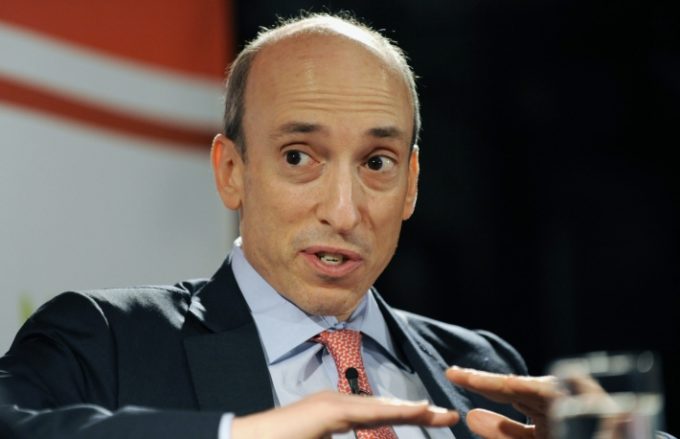Bitcoin (BTC) was lower, trading around the $38,000 level where prices have gravitated for the past week.
The market faces price resistance around $41,000, with support seen around $34,000, Mark Warner, head of trading for London-based BCB Group, a financial firm focused on digital assets, said in comments emailed by a spokeswoman.
“A move above $42,000 will likely see a resumption of the heady gains we saw last week,” Warner said. Prices are up 29% so far in 2021, versus a 0.4% year-to-date loss for the Standard & Poor’s 500 Index of large U.S. stocks.
In traditional markets, Asian and European shares fell and U.S. stock futures pointed lower on Friday, as anticipation of President-elect Joe Biden’s $1.9 trillion relief proposal, rolled out late Thursday, yielded to sober assessments of the state of the economy. Gold was little changed at $1,847 an ounce.
Market moves
First Mover wrote last October how a “blue wave” in then-upcoming U.S. elections – full control of the government by Joe Biden’s Democratic Party – could lead to trillions of dollars of new government spending on coronavirus relief and economic stimulus.
That wave has arrived, in the form of a $1.9 trillion coronavirus-relief package proposed late Thursday by U.S. President-elect Biden. And some Wall Street analysts are now wondering openly if the economy and markets are becoming hooked on stimulus.
“The market is back to an expectation that more fiscal stimulus is all but inevitable,” Ed Mills, of the stock-brokerage firm Raymond James, wrote early Friday in a note to clients.
Cryptocurrency investors could jump straight to the implication: The Federal Reserve might need to print trillions of new dollars to help finance any extra borrowing by the U.S. Treasury Department. That in turn could spur more demand for bitcoin, seen by a growing number of investors as a hedge against inflation.
“Stimulus targets could steadily increase on any setbacks with the coronavirus pandemic, and that has been one of the fundamental reasons why many continue to pile into bitcoin,” Edward Moya, a New York-based senior market analyst for the London-based foreign-exchange broker Oanda, wrote in an emailed note.
Biden’s proposal, announced in a speech, earmarks $1 trillion for families and individuals and more than $400 billion to combat the pandemic directly, including money to accelerate vaccine deployment and safely reopen schools, according to the New York Times. There’s also $350 billion of aid for state and local governments.
Democrats, set to become the majority party in both chambers of Congress, might use a “budget reconciliation” process to push the legislation through with a simple majority of votes, according to Mills at Raymond James.
“We would note that it would not prevent them from a second reconciliation package later this year,” Mills wrote.
During the 2020 fiscal year that ended in September, the U.S. budget deficit hit a record $3.1 trillion, swollen from government relief packages signed by President Donald Trump as the coronavirus-related lockdowns devastated the economy.
Ian Shepherdson, chief economist for the forecasting firm Pantheon, predicts the U.S. budget deficit could reach $4 trillion during the current fiscal year.
With the economy now suffering from the recent uptick in coronavirus-related cases and a vaccine rollout still months away, fiscal discipline looks unlikely. A government report Thursday revealed a bigger-then-expected increase in weekly unemployment claims to 965,000, the highest since August. The past year’s shift toward remote working represents another potential source of widespread dislocation.
Not to fear. As Scott Anderson, chief economist at San Francisco-based Bank of the West, a unit of the giant French bank BNP Paribas, told clients Thursday: “While the latest jobless claims report is sobering, the $900 billion coronavirus aid package recently passed and the promise of more fiscal aid coming shortly from the Biden administration should deliver some much-needed support to the unemployed and businesses in the current quarter until service-sector businesses are allowed to reopen as more Americans receive the vaccine.”
The U.S. national public debt stands at an already-elevated $27.7 trillion, and analysts say the Fed would likely have to help finance any extra goverment borrowings with more purchases of Treasury bonds, once considered an emergency measure.
“Taxes will go up, but they are unlikely to rise by what could be an incremental $4 trillion in one year,” Dick Bove, a longtime bank analyst who now works for the brokerage firm Odeon, told clients Thursday. “Thus, the Fed must step in. This can cause the dollar to decline meaningfully, inflation to rise and interest rates to become a problem. It is a worrisome situation that a President Biden may be unable to control.”
Earlier this week, Federal Reserve Bank of Dallas President Robert Kaplan, who sits on the U.S. central bank’s monetary-policy committee, suggested that officials later this year might consider whether to taper their ongoing $120 billion-a-month of bond purchases, initially implemented as an emergency measure.
But the drama was short-lived, with Fed Chair Jerome Powell on Thursday squashing speculation of an imminent tapering. “Now is not the time,” he said during a virtual discussion.
Bank of America estimates the Fed’s balance sheet will end 2021 at $8.8 trillion, up from about $7.4 trillion as of Wednesday. Before the pandemic hit at the start of 2020, the level was $4.2 trillion.
But even those estimates might be subject to change.
“Depending on the extent of U.S. fiscal expansion and deficits in coming years, there is a risk the Fed might not be able to withdraw themselves completely from the U.S. Treasury market for fear of disorderly market conditions,” Bank of America’s economists wrote this week.
The upshot for crypto traders and investors? If bitcoin is a hedge against Federal Reserve money printing, the use case doesn’t appear to be going away anytime soon.
– Bradley Keoun
Bitcoin watch
Bitcoin’s two-day rally has stalled as the U.S. dollar gains ground in the wake of President-elect Joe Biden’s $1.9 trillion fiscal-stimulus proposal.
The cryptocurrency was changing hands around $39,600 when Biden spoke at around 00:15 coordinated universal time (UTC), and prices have since traded down to about $38,000, based on CoinDesk 20 pricing.
The pullback marks a weak follow-through to the two-day rise, which saw prices revisit $40,000 resistance. The lack of a bullish response by the bitcoin market is perhaps surprising, given that fiscal and monetary stimulus is seen as inflationary, and bitcoin is seen by a growing number of investors as a store of value.
The strength of the U.S. dollar against major currencies could be playing spoilsport, with the greenback gaining in foreign-exchange markets early Friday. Over the past year, bitcoin prices have shown an increasingly negative correlation with the U.S. dollar, meaning they typically move in opposite directions.
– Omkar Godbole
What’s hot
Paxos teams up with Chainlink in fresh push to make its asset-backed tokens paxos standard (PAX) and paxos gold (PAXG) more widely available across DeFi (CoinDesk)
Some Asian traders are using Polkadot to predict bitcoin’s future (CoinDesk)
Fed Chair Jerome Powell sees “years rather than months” before digital dollar is released (CoinDesk)
Grayscale raises $3.3B in 4Q 2020, most ever (CoinDesk), adds 2K+ BTC to reserves in first day back after three-week pause on new investment; reserves addition is 2.4x number of new bitcoins minted by the blockchain (Decrypt) (EDITOR’S NOTE: Grayscale is owned by Digital Currency Group, which also owns CoinDesk.)
Trading in the BTCEetc Bitcoin Exchange Traded Crypto (BTCE) on Germany’s Deutsche Borse has climbed to levels typically only seen in the most popular European ETFs (FT)
Lido Protocol, a new DeFi and staking protcol, lets users stake ether in Ethereum 2.0 while receiving “tokenized staked ether” of a similar value (CoinDesk)
Bahamas-based Deltec, bank to Tether, says it invests customer funds in bitcoin, renewing questions on whether the USDT dollar-linked stablecoin might be backed by bitcoin (CoinDesk)
Galaxy Digital launches proprietary mining, miner financial services (CoinDesk)
Some analysts (and data) cast doubt on narrative that bitcoin miners were responsible for recent price dips (CoinDesk)
Analogs
Jobless claims surge more than expected to 965K, highest weekly total since August (CNBC)
Retail arm of Thailand’s state-owned energy giant PTT plans initial public stock offering with fund-raising goal of 54B baht ($1.8B), potentially sign of booming year (Nikkei Asia Review)
Australian fintech firm AfterPay becomes 13th largest stock by market cap on ASX following coronavirus pandemic (Australian Financial Review)





